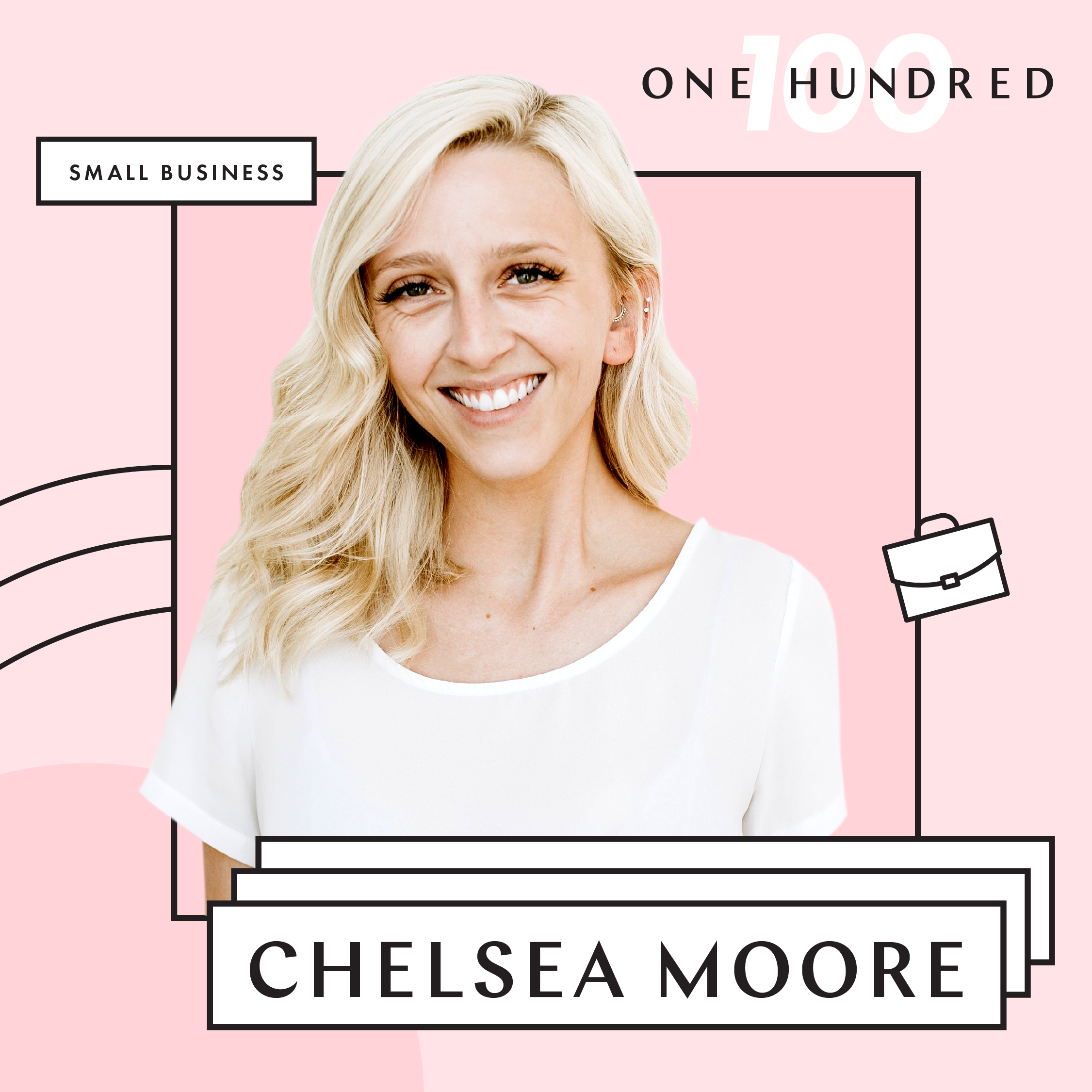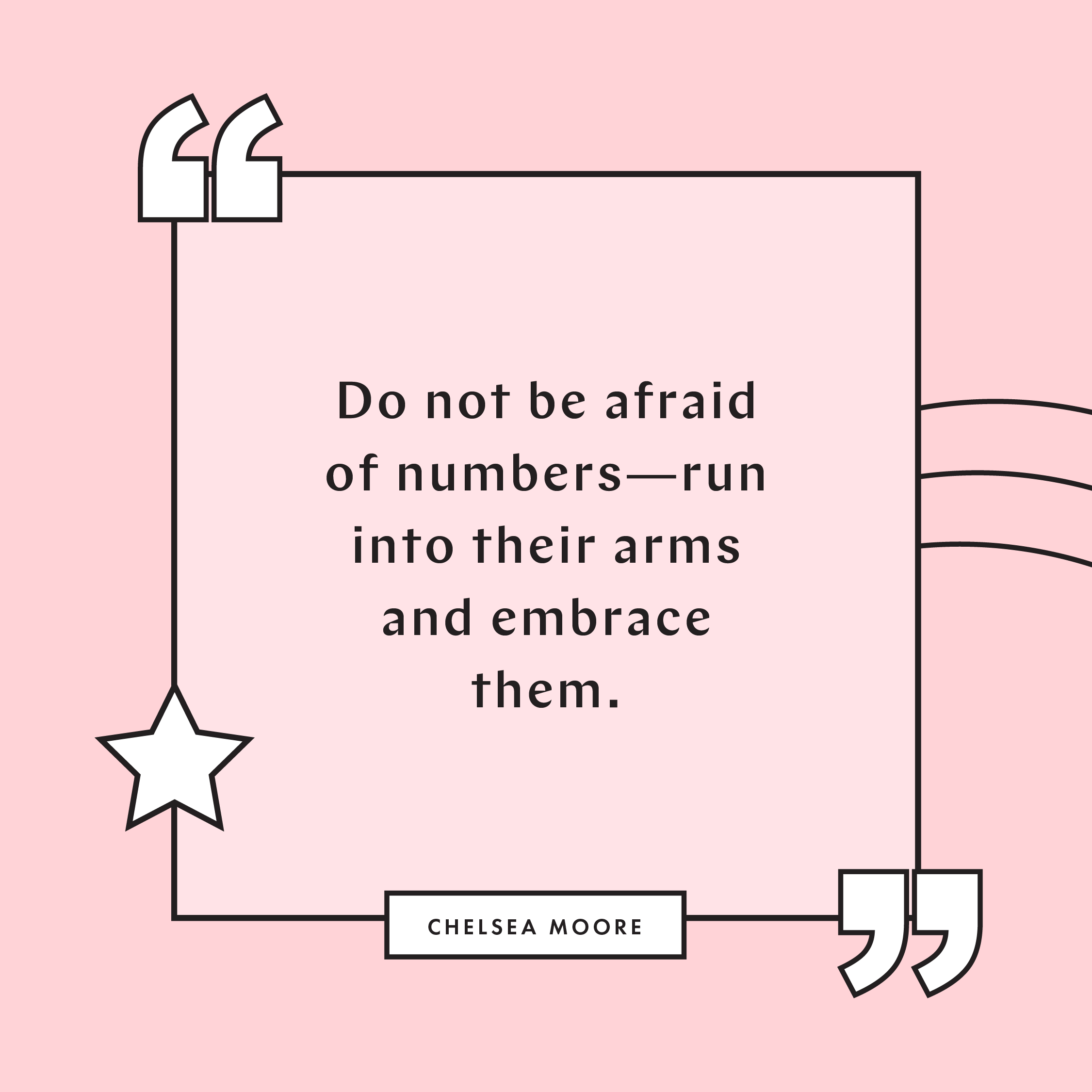Create & Cultivate 100: Small Business: Chelsea Moore
Every successful business idea comes from a need, a gap. It's in this whitespace where Chelsea Moore and her two co-founders, Jenni Olivero and Sabena Suri stumbled upon the idea for their gifting company, BOXFOX.
After a close friend became sick, Moore and her cofounders, Jenni Olivero and Sabena Suri, realized there was a serious lack of options that could show you were “there” for someone even when you couldn't be there physically. “We wanted something that went beyond flowers and the typical overpriced (and wasteful) gift basket,” she tells Create & Cultivate. “Our standards were high: we wanted something presentable, personal, and with a purposeful product that was simple to send.”
So, they did some research and discovered a lot of people were also looking for a modern and seamless gifting experience, too. It didn't exist, so they built it and they’ve been disrupting the space ever since. Now, five years later, they have an easy-to-use consumer platform with a pre-curated ready-to-ship collection, a Build a BOXFOX platform where customers can build their own gifts and care packages from all the best brands in one place, and a corporate gifting arm called BOXFOX Concierge, with a dedicated sales team and a members-only platform.
Read on to hear more about how they are redefining the gifting model, how they work together as co-founders, and why they decided to bootstrap the business over raising VC.
CREATE & CULTIVATE: As the co-founder and CEO of BOXFOX you have your hand across all areas of the business—but for those of us who don't know what it's like to be a CEO or aspire to, can you share what your role entails? Can you give our readers a snapshot into what your day-to-day of a CEO looks like? Does the reality of your role stack up to your expectations?
CHELSEA MOORE: Here at BOXFOX, as co-founders, we lead equally, so we share a lot of the long-term planning, people management, and financial responsibility. However, we've all settled into the verticals we spearhead, with each other’s support, of course. As the CEO, I oversee all creative, marketing, legal, and web development. On a daily basis, I'm either diving right into emails, design work, photography, approving content calendars, web development projects, putting out fires, or planning meetings. Being our CEO is everything I expected, in that I believe there is sometimes stuff you want to do and stuff you have to do, and I was prepared for that roll-up-your-sleeves reality. The one aspect of the job I wasn't expecting though was how much more complex it all gets as you grow. There's more to oversee, more to manage, and more at stake.
Gifting is such a saturated space. What makes BOXFOX different? How have you differentiated the brand so it stands out above the competition and in a crowded industry? Why do you think BOXFOX has been so successful?
We didn't invent gifting, but we did make it modern in a way no one else was doing. We prioritized being a business built with scalable customization at its core, empowering customers to gift well and often. For B2B, corporate gifting lacked a ‘go-to’, elevated, all-in-one solution. BOXFOX has built a brand with a diverse, loyal following who seek approachable, no-fluff, tech-forward, personalized service to make life easier for everything from small tokens to grand gestures. We're proud to share an office space with our warehouse and be an approachable, authentic gifting resource for our loyal customers.
“Do your research, be prepared, and be ready to work 10x harder than you could have ever expected.”
You proudly run a self-funded startup, so can you talk us through the bootstrapping process? Would you recommend that route to other entrepreneurs? Do you have plans to scale? Do you have plans to raise?
For us, bootstrapping from the start was intentional: we wanted to prove the effectiveness of our business model, perfect our systems, and decide what type of company we wanted to build—how quickly or slowly, how much control we wanted to maintain, and what our priorities were. Early on, our goals were to achieve steady, organic growth, build a meaningful workplace, and reinforce the human side of e-commerce. We weren’t necessarily thinking about an exit strategy, which raising money would have necessitated, so it wasn’t the path for us.
Of course, there are so many businesses that raising makes sense for; the best advice I’ve ever gotten is to truly think about what your priorities are, and whether those objectives line up with taking on capital. It all comes down to what kind of business you want to run.
When you're a small business you have to fall in love with the numbers, what have been some of the hardest money lessons you've learned along the way? What is your #1 money tip for small business owners? Why?
Do not be afraid of numbers—run into their arms and embrace them. Understanding them is the key to really understanding your business. If they intimidate you, take classes on Skillshare or Lynda, find a family friend who will sit down with you for an hour and explain more advanced concepts. Don't just find accountants and bookkeepers who you delegate to, find ones that will educate you and make you a stronger business owner.
What were the immediate things you had to take care of to set up the business?
I'm not sure if there is a perfect order for these initial items, but we bought our website domain, went through the city/county/state to set up all business license documents, got a CA resale ID, and then started our social channels about six months prior to launch. Then in the meantime, we were building our website and coordinating our first BOXFOX box samples.
There are three co-founders at BoxFox—do you recommend having partners in business? Why? What is the secret to a successful working relationship?
I think every business can have different needs when it comes to solo founders versus co-founders, but for us, it has been such a blessing to have each other on this journey. We each bring complementary strengths to the table and different backgrounds which only bring out the best in each other and our business. The secret to our successful relationship is a shared long term vision for where we want this to go, respect for each other's personal and professional needs, and over-communication.
When you hit a bump or hurdle in your career, how do you #FindNewRoads + switch gears to find success
On a business level, there can be setbacks or mistakes and our company philosophy is always to analyze, find the silver lining, and never make the same mistake twice. When it's a personal bump or hurdle, like creative burnout or management overload, I've always believed in taking action. Identify the issue, come up with a plan, and move forward, because life is way too short. Before BOXFOX, I was so unhappy at my old job, but after a month-long pity party, I quit and we set off on this entrepreneurial journey.
You have had so much success, but if you could go back to the beginning with the knowledge you have now, what's one thing you would tell yourself and why?
We have such great lawyers, accountants, insurance brokers and outside partners that we rely on so heavily. It can be scary to reach outside of your immediate circle to find the experts you need, but if I could go back, I would have prioritized finding these superstars sooner.
“The biggest lesson we’ve learned along the way is that business is personal and management is a muscle that has to be strengthened.”
Creating buzz so people know about your brand can be challenging for small businesses. How do you market your business? How are people aware of your business? What are some unique social media and marketing tools you've used to grow organically?
We didn't have the money for digital marketing or PR in the beginning, so we got creative. We have a very strong visual identity, so we took the time to perfect that and lean into free tools, like Instagram and Pinterest. Beyond that, we leveraged our network and told everyone we knew and met about our company and mission. We definitely got lucky with some organic press hits in the beginning too. As we've gotten bigger, we've experimented with PR and digital marketing in small bursts of concentrated effort, but the overwhelming majority of our traffic is still organic or word of mouth.
What are some of the biggest lessons you’ve learned along the way and what have they taught you?
The biggest lesson we've learned along the way is that business is personal and management is a muscle that has to be strengthened. Leading a company requires empathy, interpersonal skills, a desire to connect with employees, partners, and vendors in a meaningful way. It takes practice, and it's never perfect, but the reinforcement of those skills has happily become a big part of my life.
What advice would you give to young entrepreneurs who have an idea but don’t know where to start to execute it?
Do your research, be prepared, and be ready to work 10x harder than you could have ever expected. I always share with fellow entrepreneurs to just get started. Perfect those product samples, start setting up the business paperwork, test the software. Once you get going, it really will snowball from there. Also, never agree to start doing anything without a signed contract (you will thank me for this later, I promise!).
Photographer: Lexi Hatch
VIEW THE FULL CREATE & CULTIVATE 100 SMALL BUSINESS LIST HERE.




